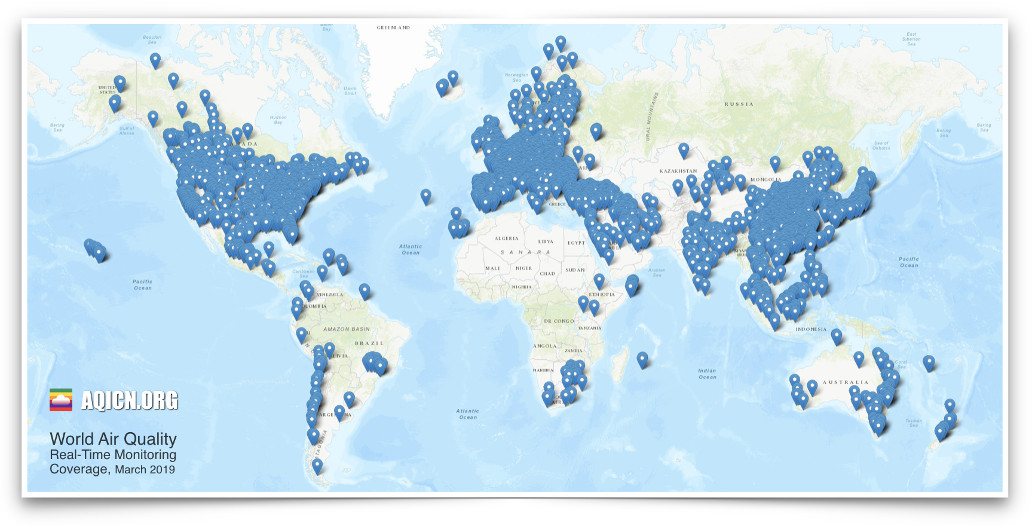
Das World Air Quality Index-Projekt ist ein gemeinnütziges Projekt, das 2007 ins Leben gerufen wurde. Seine Aufgabe besteht darin, das Bewusstsein der Bürger für Luftverschmutzung zu stärken und einheitliche und weltweite Informationen zur Luftqualität bereitzustellen.
Das Projekt stellt über die beiden Websites aqicn.org und waqi.info transparente Informationen zur Luftqualität für mehr als 130 Länder bereit und deckt mehr als 250.000 Luftqualitätsüberwachungsstationen in 2.000 Großstädten ab.
Das Gründungsteam besteht aus mehreren Mitwirkenden in den Bereichen Umweltwissenschaften, Systemtechnik, Datenwissenschaft sowie visuelles Design. Das Team ist weltweit gewachsen, mit neuen wichtigen Unterstützern aus China, Singapur, Indien, Australien und den USA.
Das Projekt hat eine soziale Absicht. Doch trotz seiner umfangreichen Reichweite hat es nie öffentliche Mittel erhalten. Unsere Einnahmen, im Wesentlichen aus Online-Werbung sowie unseren GAIA- Luftqualitätsüberwachungsstationen, werden zur Deckung der Cloud-Infrastruktur und der Hosting-Kosten verwendet.
Das Projekt ist ständig auf der Suche nach Unterstützung durch weitere Mitwirkende.
Mittlerweile hat es aktive Beiträge von mehr als 16221 Bürgern aus 138 Ländern erhalten


